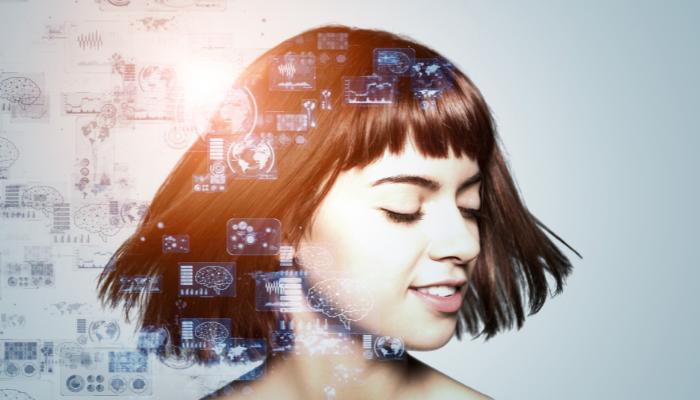Hey there, curious minds! Have you ever interacted with a website demo and thought, “Wow, this feels real!”? There’s a good chance you were conversing with an AI-generated human image.
They can nod, smile, frown, and make you feel like you’re dealing with a human. Intriguing. In this article, we’re pulling back the curtain to reveal how you can create compelling interactive demos peppered with these almost-human figures.
Also Read: How To Search YouTube Videos By Length
Importance of Interactive Demos
Interactive demos are like the theme parks of the digital world. They offer a guided yet exploratory experience far exceeding what you’d gain from a boring PDF manual or a monotonous video guide.
They provide an immediate, hands-on approach to problem-solving or learning. But what can make them even more engaging? Human-like figures! And that’s where AI-generated human images step in.
Also Read: 4 Best Free SpongeBob Text-to-Speech Generator Websites [Updated]
Role of AI-Generated Human Images
These AI-generated images add a sprinkle of humanity, making digital interaction feel less like dealing with code and more like dealing with a person.
They can simulate facial expressions, hold different poses, and make the demo more personable. So, how do you combine AI and human touch into your demos? Stick around to find out!
The Rising Trend of AI-Generated Human Images
What Are AI-Generated Images?
Imagine an artist with a never-ending canvas and an inexhaustible set of paints who didn’t need sleep, food, or inspiration to create. That’s what AI is to the digital realm of image generation.
Using neural networks, AI can create human images that are almost indistinguishable from photographs. These are not real people, but they come eerily close, capable of portraying a wide range of emotions and poses.
Why Are They Becoming Popular?
In an age where personalization is key, AI-generated human images are a goldmine. They offer the emotional connection of a human face without the intricacies and costs of a photo shoot, modeling, or licensing.
You can modify them, adapting them to fit different moods, backgrounds, or themes. Plus, they offer a level of consistency that’s hard to achieve with accurate human models.
Also Read: 20 Best Free Soundboard Software For Windows and Android [Updated]
Essential Tools for Making Interactive Demos
AI Tools
There’s no shortage of tools for generating human images via AI. You’ve got options like DALL-E, Runway, Generated Photos, etc.
Each tool has unique features, some offering a high degree of customization, while others focus on generating images quickly.
Design Software
You’ll also need a robust design platform like Adobe XD, Figma, or Sketch. These tools allow you to assemble the layout, integrate AI-generated images, and create interactive elements like buttons, quizzes, or contact forms. Think of them as the stage where your AI actors will perform.
Also Read: How To Sort Spotify Playlists By Date Added, Release Date, etc.
The Concept of AI in Design
How AI Is Changing Design
AI’s impact on design is like the invention of the printing press on literature. It’s revolutionary. AI can aid in automated design suggestions, generate entire layouts, help with color selection, and even conduct A/B tests to determine which design elements work best. All this while you focus on the creative aspects.
Ethics in Using AI-Generated Human Images
As with any technology, ethics can’t be overlooked. When using AI-generated images, ensure you’re not misrepresenting or falsely impersonating real individuals.
Always make it clear in disclaimers or captions that the images used are AI-generated to maintain transparency.
Also Read: 5 Best Cartoon Characters Voice Generator Text-to-Speech Apps
Planning Your Demo
Objective Setting
You must clearly define your objectives before selecting images or creating interactive buttons. Are you aiming to educate the viewer, showcase a product, or perhaps drive engagement for a cause? The more precise your objectives, the more focused your design will be.
Target Audience
The flavor profile is the target audience if your demo is a dish. You must know who you’re cooking for to select the right ingredients.
Different demographics respond differently to design elements and interactivity, so knowing your audience is crucial.
Also Read: 7 Best Chess Solver Websites | Chess Move Calculator Tools
Creating the Demo Script
Importance of a Good Script
Imagine a blockbuster movie with all the visual effects but no storyline. Confusing, right? A good script in an interactive demo serves as the plot.
It tells the viewer where to go, what to look at, and what to click on. It’s your way of guiding them through the maze of your content.
Tips for Writing
While writing your script, remember to keep it as straightforward and engaging as possible. Sprinkle it with rhetorical questions like, “Want to find out more?” or “How does this benefit you?” to keep your audience thinking and engaged.
Also Read: 2 Best Morse Code Audio Decoder Websites
Selecting AI-Generated Human Images
Sources of AI-Generated Images
Whether it’s a free platform or a premium service, several websites offer a variety of AI-generated human images. Some popular choices are This Person Does Not Exist, Generated Photos, and more.
How to Choose the Right Image
Think of your AI-generated human image as a brand ambassador. It must resonate with the product you are showcasing, your message, and your target audience.
The image should align with the look and feel of your brand and should be contextually relevant.
Creating Interactive Elements
Interactive elements are the cherries on top of your interactive demo sundae. They provide the little nudges encouraging user action—filling out a form, taking a quiz, or clicking a ‘Learn More’ button.
Also Read: 5 Best Photo Management Software With Facial Recognition
Integrating AI-Generated Human Images
The Steps Involved
Once you have your image, it’s time to put it into action. Use your design software to integrate the image into your layout.
Ensure it complements the other elements, doesn’t overpower them, and seems like a natural part of the user journey.
Considerations
Consider layout balance, color harmony, and visual flow when placing your AI-generated images.
You don’t want the image to stick out like a sore thumb; it should seamlessly blend in, enhancing the overall interactive experience.
Also Read: 4 Best DPI Tester Websites [Free Online DPI Analyzer Tools]
Testing and Quality Assurance
Why Testing is Important
Ever tried baking without tasting it? Well, launching an interactive demo without testing is similar. Testing helps you identify glitches, maritime issues, or design elements that may be off-putting or confusing for the user.
Types of Testing
There’s a buffet of testing types you can and should perform, from functional and usability testing to A/B testing to see which design elements are most effective.
Launching Your Demo
Platforms and Promotions
Creating a great demo isn’t enough; you need eyes on it. Depending on your target audience, you can host your interactive demo on your company website, showcase it in webinars, or even feature it on social media channels for maximum visibility.
Also Read: 8 Best Screen Resolution Changer For Windows
Feedback Loop and Iterations
Importance of Feedback
Once your demo is live, feedback becomes your best friend. It tells you what’s working, what’s not, and where you can improve. This is not a one-time process; it’s a cycle of continuous improvement.
Real-World Examples
Companies like Duolingo, Mailchimp, and even tech giants like Apple have successfully implemented AI-generated human images to add personality and relatability to their interactive demos.
Limitations and Challenges
When using AI-generated images, ensure you know the copyright laws, especially if using premium platforms. Misuse can lead to legal complications.
Also Read: 5 Best Free Redis GUI Clients for Windows
Conclusion
Creating an interactive demo using AI-generated human images is an intricate yet rewarding process.
It blends technology and creativity to create an informative and engaging user experience. So, what are you waiting for? Are you ready to make your interactive demo a reality?


